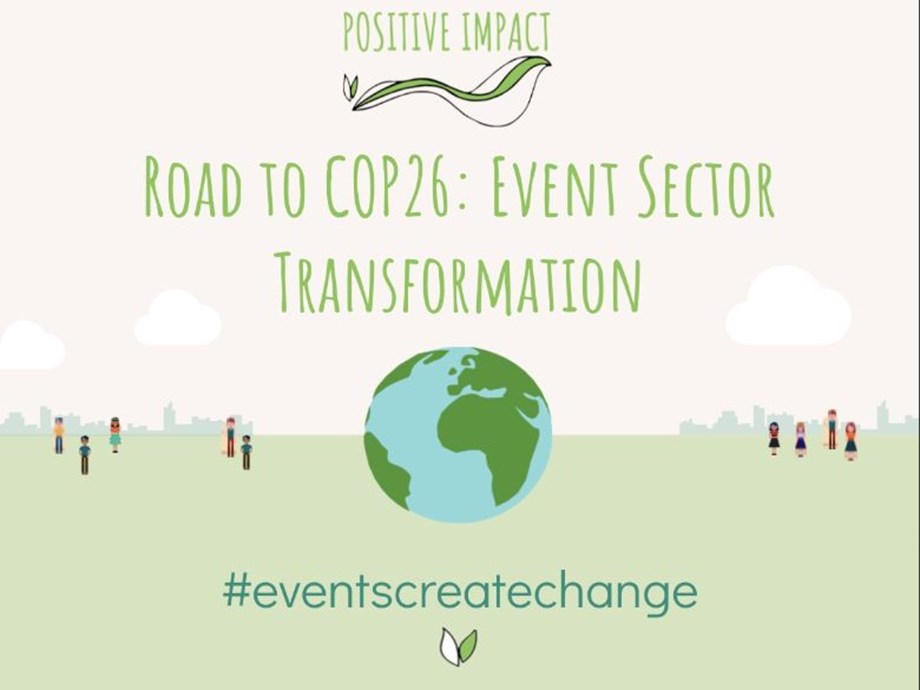August 2021
TICA
mice
UPDATE

Event sector at the cusp of sustainable transformation?
Virtual events, carbon reduction targets and changing the narrative for in-person meetings — what's next as the industry faces a renewed green calling.
This article was originally found on M&C/Asia.
The events sector is at a pivotal point in its sustainable transformation. With impeded travel and meetings during the pandemic bringing about a drastic reduction in carbon emissions, there are mounting expectations for virtual or hybrid formats to continue, and for the narrative around in-person meetings to evolve.
A recent UFI poll revealed that a majority of respondents consider the environmental impact of the exhibition sector to be important to them.
UFI also found that organisers, venues and service providers rate the pace of transition towards sustainability around halfway between “only starting the transition” and “very advanced”. Exhibition participants rate the efforts of the industry as “average”.
The sustainability imperative
The poll further revealed that 77% of exhibitors and 65% of visitors believe that organisers are responsible for helping the industry contribute to positive environmental change.
While event companies impacted by the pandemic may be hard pressed to prioritise environmental sustainability, not-for-profit organisation, Positive Impact Events argues the sector is closer to transformation than ever before.
“If we ignore [sustainability commitments], the challenge is only going to be bigger. It is a matter of short-term pain for long-term gain,” said Fiona Pelham, CEO of Positive Impact Events, speaking with Northstar Meetings Group in a recent Eventful Podcast.
“The journey towards a sustainable events sector is now easier and closer than the average company would think… It used to be unimaginable that a corporate business would say no global travel because of carbon impact. But now it’s imaginable because of what the pandemic [and virtual events] has shown us, and also because of the greater focus [different stakeholders are placing] on carbon reduction.”
Taking the first step to set carbon reduction targets would be “advantageous to the event sector,” she added.
A growing number of corporate clients have their own carbon targets, and would factor this into their choice of event companies to work with, Pelham explained.
According to the UFI poll, key actions to create a more environmentally- sustainable industry include the development of new technologies or processes for problems such as waste and carbon emissions.
Step one: set carbon targets
Ahead of the 26th UN Climate Change Conference (COP26) bound for Glasgow later this year, climate action proponents are encouraging the events sector to take steps towards a more sustainable future by making a pledge and setting carbon targets.
Working towards a goal to support 1,000 event companies in making net-zero commitments, Positive Impact Events, with support from SME Climate Hub, launched the Road to COP26: Event Sector Transformation programme.
Event companies who sign up will be invited to attend six engagement sessions — a mix of webinars, podcasts, roundtables and practical toolkits — that will lead them towards setting carbon targets, shared Pelham.
The programme also aims to connect interested companies to a UNFCCC (United Nations Framework Convention on Climate Change) climate action framework set to be unveiled at COP26.
Thirty-four event companies including MCI Group UK, Reed Exhibitions and Martiz Global Events have already joined as members of the climate action framework.
Changing the in-person narrative
This week, Eco-Business, an independent intelligence company dedicated to sustainable development and ESG performance, and virtual events provider GEVME released a joint statement signalling a shift towards more sustainable offsite events.
“A comparison of a six-hour virtual event and an in-person equivalent found that the emissions of the physical version were 66 times higher than the virtual event based on air travel alone,” the partners said in the statement announcing Eco-Business’ decision to take two of its upcoming events virtual.
However, Positive Impact Events’ Pelham warned against a total shift to virtual formats, and stressed the importance of “changing the narrative” surrounding in-person events.
"It is vital that human beings connect face to face. But we cannot ignore the carbon footprint challenge — business leaders [clients] will not accept that. [If on the other hand], we tell them that we understand [concerns with carbon emissions] and have a framework in place for that, [then clients will listen] when you tell them about the importance of face-to-face meetings.”
While Positive Impact Events focuses on corporate events, Pelham said there are also signs coming from the global associations sector that carbon reduction is on the agenda.
Indeed, Thomas Bach, president of the International Olympic Committee recently announced a goal for the 2024 Olympics in Paris to not only be carbon neutral, but also climate positive.
More talk, more action
The “narrative” of setting carbon targets may be strong, however, recent events have highlighted the concomitant importance of carbon calculations.
In June, it was announced that the G7 summit will be carbon-neutral, achieved by offsetting emissions from international travel through a composting facility in Vietnam. Reports surfaced shortly after questioning the green messaging and how carbon emissions were calculated.
Perhaps, the focus now is on taking the first step.
Pelham told Northstar Meetings Group: "We want to remove the 'scariness' by opening the door to sign with bodies [like the United Nations] that will enhance the reputation of the global events sector."



